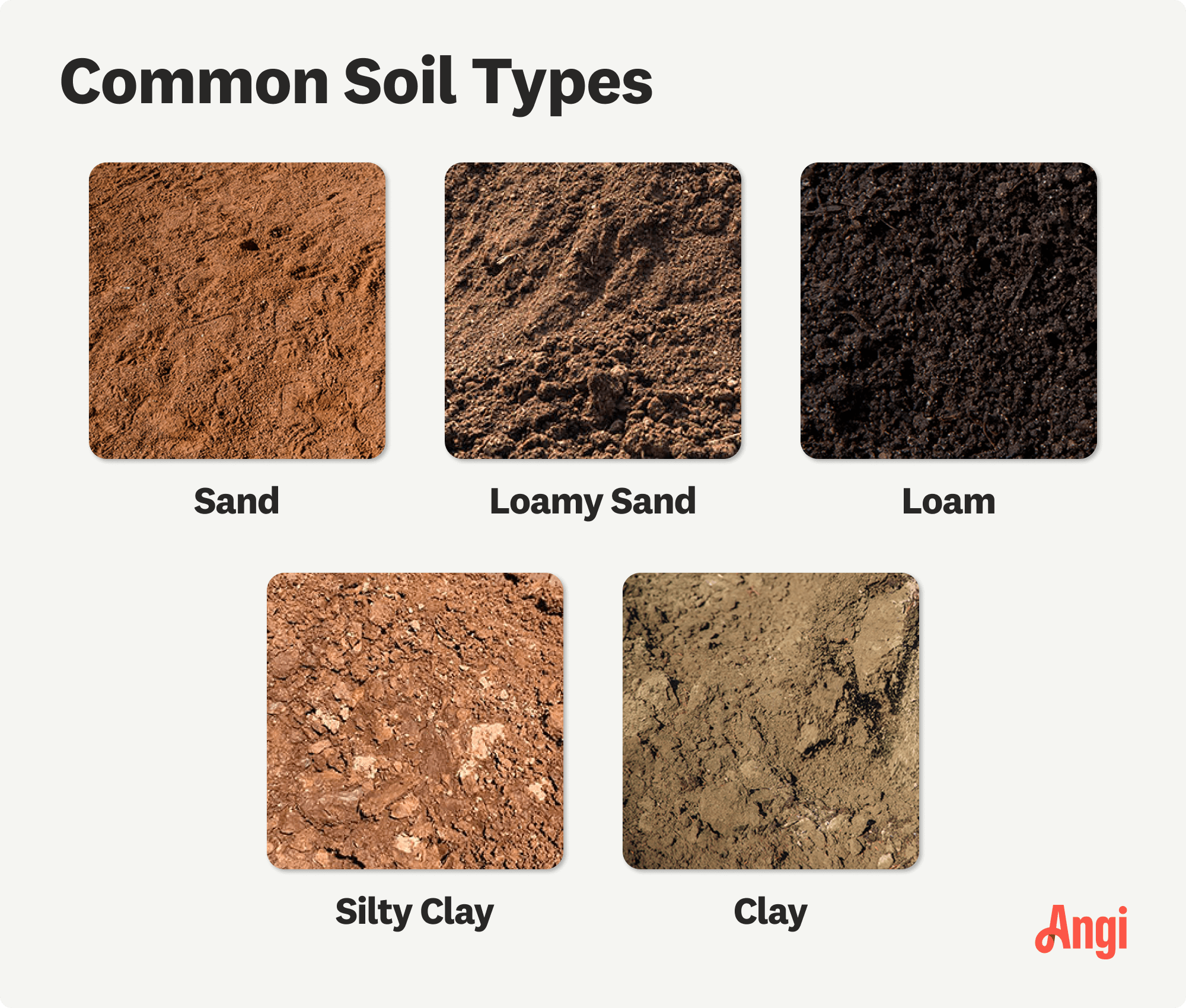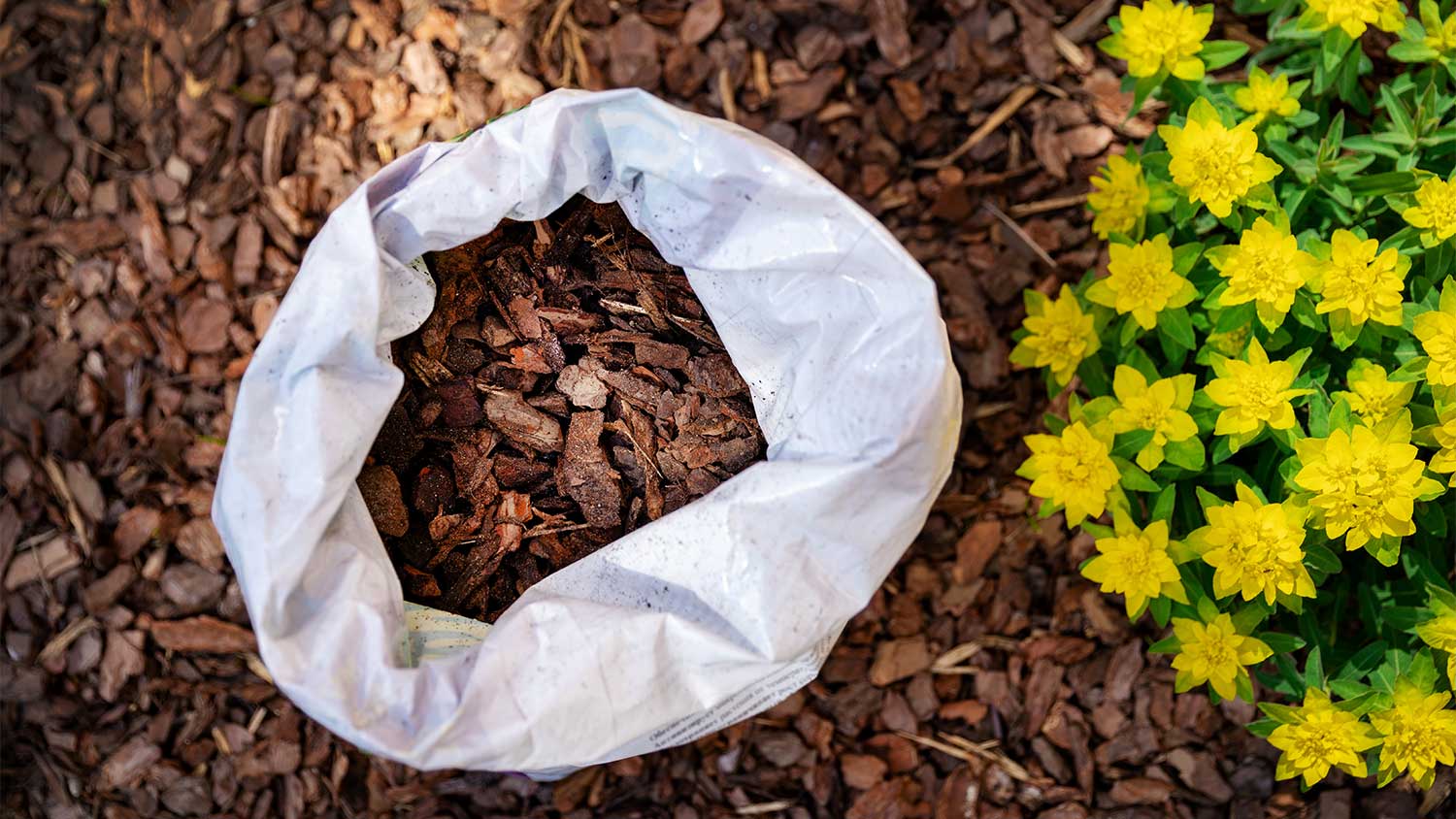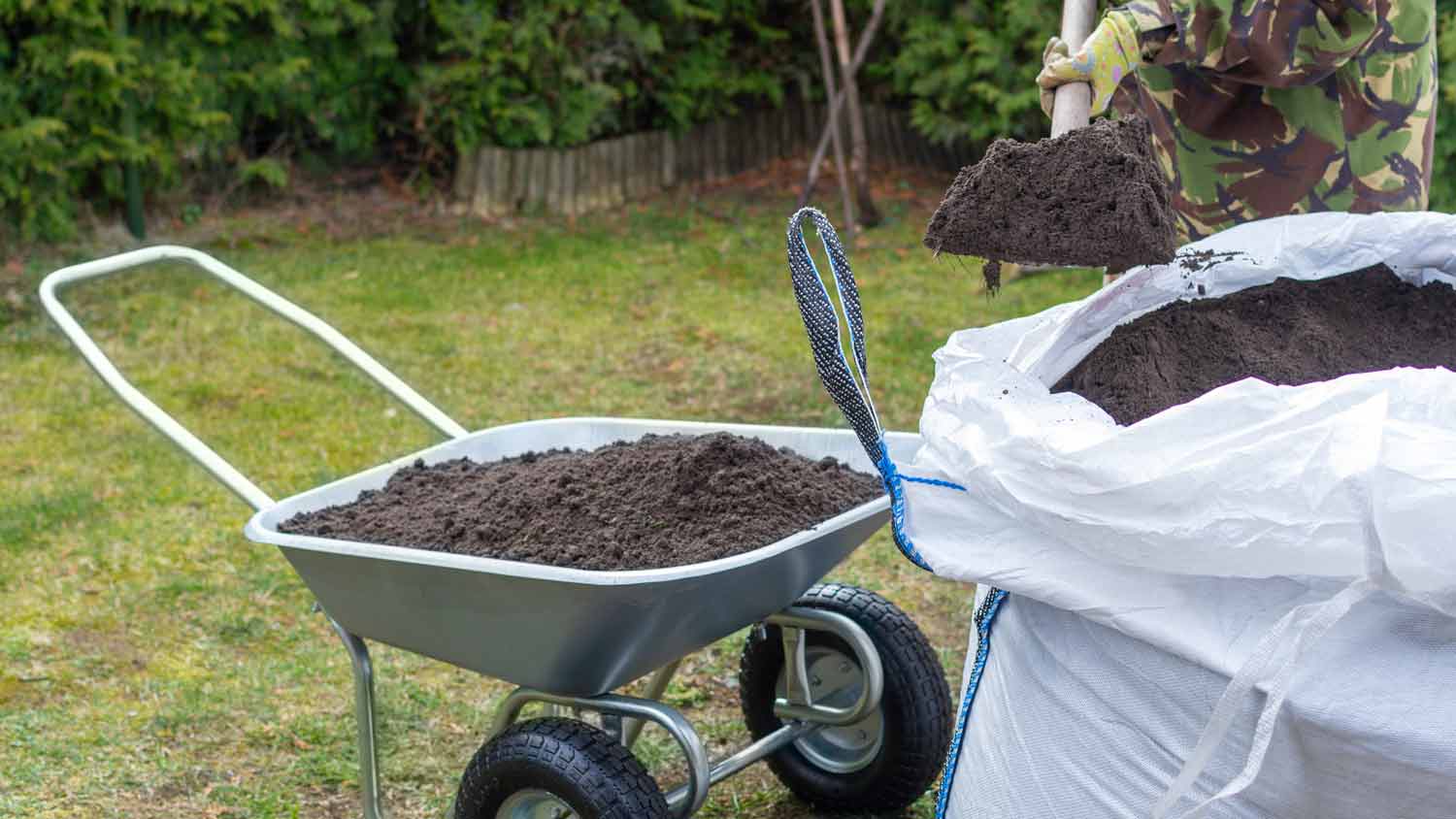
Gravel is an inexpensive paving material overall, but costs vary by type. Find out what average gravel prices will look like for your project.
Mulch and topsoil service costs depend on your project and location. Check with a local pro for your specific job.
Standard soil testing typically costs between $10 and $200, depending on whether the test includes lab processing.
Geotechnical soil testing — often required before construction — costs significantly more, ranging from $1,000 to $5,000 due to the specialized equipment and expertise involved.
Professionals usually charge $100–$200 per hour (or $1,000–$2,000 per day) to analyze soil samples.
Testing for contaminants (such as oil or heavy metals) costs between $40 and $550 but may lead to costly cleanup or EPA fines.
A DIY soil test can cost as little as $15, but you’ll get more detailed insights with an advanced kit or professional testing.
A soil test costs around $1,382, in most cases, and prices often fall between $652 and $2,112. Something like a simple garden soil test will cost between $10 and $200, testing for contamination can reach up to $400, while geotechnical testing can cost between $1,000 and $5,000.
Generally, the materials for standard test kits cost $10 to $200. However, some tests, such as geotechnical testing, require heavy, expensive, specialized equipment, hence the higher price tags of these types of tests.
Once you have your samples, labor depends on the amount of work involved for testing. For a chemist or lab technician to review your tests, you can expect to pay $100 to $200 per hour or $1,000 to $2,000 per day. While some test results are quick to process and review, others require a deeper, more time-consuming technical analysis.
If you require an on-site technician, as in the case of a geotechnical soil test, expect to pay an additional $50 to $100 per hour or a day rate of $300 to $800.
It's important to test multiple soil samples from different parts of your property before building. Different areas can have different makeups, so testing in multiple areas can help identify variability in soil conditions.
There are many different types of soil testing, and which one you need depends on what you're testing for. Simple at-home tests tell you the basics about your soil, such as the current pH or what nutrients your soil is missing. However, more comprehensive tests may be required before construction projects or if any kind of contamination is suspected.
Note that contamination testing is sometimes just the first expense if you suspect you have an oil leak or some other chemical spill. You might need to budget much more for the cost of environmental cleanup, and you may need to pay fines for the contamination to the Environmental Protection Agency (EPA).
| Type of Test | Soil Test Range | Average Cost |
|---|---|---|
| Garden Soil Testing | $15 – $200 | $110 |
| Lawn Soil Testing | $20 – $100 | $60 |
| Sulfur and Boron Testing | $25 – $100 | $60 |
| Specific Contaminant Soil Testing | $30 – $50 | $40 |
| Soil Texture | $35 – $75 | $55 |
| Gravity of Soil Testing | $50 – $80 | $65 |
| Fertility of Soil | $50 – $300 | $175 |
| Heavy Metal Testing | $70 – $200 | $135 |
| Basic Soil Profile Testing | $270 – $300 | $285 |
| Oil Tank Soil Testing | $500 – $550 | $525 |
| Advanced Soil Testing | $500 – $570 | $535 |
| Soil Composition Testing | $600 – $675 | $640 |
| Geotechnical Testing | $1,000 – $5,000 | $3,000 |
Garden soil testing costs $15 to $200. A basic at-home test that requires no lab processing comes in at the lower end of this range—but the results you get are pretty limited and often just tell you the soil pH and nitrogen, phosphorus, and potassium levels. More complete tests that require lab processing sit at the upper end of this range but include more detailed information about your soil's composition and nutrient profile.
Lawn soil testing ranges from $20 to $100. You can expect to pay closer to the $20 mark if you plan to do it yourself. If you're planning to seed a new area or have issues with an existing lawn with persistent dead patches, poor health, or just inadequate growth and performance, you should consider doing a lawn or turf test.
These kits contain everything you need to sample your soil at home. Some have at-home processing, so you get basic answers fast, while others provide more detailed results, requiring that you send them away to a lab for processing.
Testing the soil in your lawn tells you what your soil is lacking or has too much of and lets you strategically plan and add the right amendments to remedy the issues and grow a healthy lawn.
Sulfur and boron testing costs $25 to $100 and is a smart test to order if your plants exhibit smaller vegetation, stunted growth habits, and reduced fruit yield. Sulfur and boron are important but often overlooked nutrients; they have a significant impact on lawn and garden health. So, if you already have problems or are planning a new growing space, this is a test worth using.

Soil texture testing costs $35 to $75 and is also known as ribbon testing. It's an easy and inexpensive test that tells you the basic composition of your soil.
Once you know the basic makeup of your soil, you can find the plants that thrive in those conditions or add the right amendments to rectify issues. Problems you can correct include compaction and lack of drainage in heavy clay or the lack of moisture retention in excessively sandy soil.
Individual tests to look for the presence of single specific contaminants cost $30 to $50, on average. You'd use a test of this type if you suspect a specific contaminant may be in your soil, as these tests are less expensive than broad-spectrum testing kits. For example, if you suspect lead in the soil, it costs less to purchase a test for lead than a broader heavy metal contamination test kit.
Homeowners often use these types of tests when they suspect or want to eliminate a single contaminant, such as lead, E. coli, petroleum, or solvents.
Gravity soil testing costs $50 to $80 and tells you how much water your soil can hold. It's an important test if you plan to grow a fruit or vegetable garden, as the water content of your soil, its ability to retain moisture, and to what degree will all determine the success or failure of your growing space.
Similarly, this test is most common during the planning stages of a construction project. Experts who do soil testing use this to determine if the soil retains too much water or drains too rapidly. In either case, soil expansion and contraction from changes in moisture can cause instability under and around your foundation, leading to damage. Once the contractor has this information, they can determine what amendments they’ll need to make to prepare the ground for construction.
Similar to gravity testing, a soil perc test or percolation tests the drainage of the soil, specifically around septic systems. Whether you need a traditional soil test or a perc test will depend on why you’re testing how much water your soil can hold.

Soil fertility testing costs $50 to $300 and is a more comprehensive study of the soil's composition than the standard garden test kits. With this kind of test, you get a full nutrient profile of your soil, showing how fertile it is, what's lacking, and what you can do about it. This lets you replenish missing nutrients and plan to grow plants that will thrive in your specific soil.
Heavy metal soil tests cost $70 to $200 and, as the name implies, test for the presence of potentially harmful heavy metals. This is a broad-spectrum test and looks for multiple heavy metal contaminants, including, but not limited to the following:
Arsenic
Cadmium
Chromium
Copper
Lead
Nickel
Selenium
If the test identifies any of these harmful substances, you can then take steps to rectify the issue. Heavy metal contamination is a common problem with soil in older residential areas or residential areas that were formerly commercial areas.
Basic soil profile testing costs $270 to $300 and provides a detailed breakdown of the composition of the soil, but it goes beyond the standard top few inches sampled in garden and turf testing.
With a soil profile of this type, the test examines the soil's makeup from the surface down to the bedrock, giving you a more complete picture. However, it still doesn't provide you with any information about contaminants.
Advanced soil profiling costs $500 to $570 and provides a complete picture of your soil, including its structure, composition, nutrient profile, and levels of a range of potentially dangerous contaminants, including heavy metals.
Oil tank soil testing costs $500 to $550 and is essential if you have or previously had an oil tank buried on your property. This soil test identifies whether oil has been leaking from the tank and spreading through the surrounding soil, which would be a serious health and environmental hazard.
This test is costly because soil has to be taken from around the whole perimeter of the tank and sent to a lab for processing. If your test reveals that there is an oil leak, you’ll also have to pay fines to the EPA, and you’ll need to pay for an environmental cleanup, which can cost thousands of dollars.
Geotechnical soil testing costs $1,000 to $5,000 and determines the suitability of the land for the construction of a home. This type of comprehensive test involves multiple individual tests that look for safety, suitability, stability, and proper drainage. It can also help to determine what type of foundation works best, how much drainage is required, where to put drainage, what fill dirt to use, and where to direct groundwater.
“Geotechnical testing” is really a catch-all term for a handful of different specific tests you might need that collectively make up a geotechnical test. You may only need a few of the following tests before construction.
| Test Type | Cost |
|---|---|
| Compaction test | $375–$650 |
| Percolation test | $100–$1,000 |
| Boring test | $800–$1,400 |
| Composition test | $600–$3,000 |
| Advanced soil test | $500–$570 |
It's important to ensure you have the right soil before starting your project. Hire a soil or geotechnical engineer to perform testing on your soil to make sure it's suitable for your construction.
Soil testing is often the first step in a larger project, so you may want to consider the following add-ons and budget for your next steps at the same time.
Garden bed installation cost: $4 to $12 per square foot
General landscaping cost: $1,200 to $6,000
Septic system installation cost: $3,600 to $12,400
French drain installation cost: $500 to $18,000
Foundation repair cost: $2,200 to $7,900
Cost to install a retaining wall: $3,200 to $9,200
Cost to build a house: $139,000 to $526,000
Cost to seed a lawn: $440 to $1,750
You can perform a basic soil test yourself for as little as $15. However, at this price point, the information that you'll get will be fairly basic, like the nutrients present or missing in your soil. But, in some instances, such as if you're just checking the pH or nutrients to see if they are suitable for growing blueberries, that basic information is all you need.
However, when a more detailed report is necessary, you cannot do the test yourself unless you have access to a processing lab and the skills to complete the scientific analysis. You can, however, often save money by collecting the samples yourself so you don't have to pay for an on-site technician.
For specialized tests, such as geotechnical soil testing, you really can't do any part of it yourself, so you’ll need to hire a soil tester near you. That's because the equipment needed to gather all the appropriate samples is cost-prohibitive to the average homeowner and requires a high degree of specialized knowledge.
Home is the most important place on earth, which is why Angi has helped more than 150 million homeowners transform their houses into homes they adore. To help homeowners with their next project, Angi provides readers with the most accurate cost data and upholds strict editorial standards. We survey real Angi customers about their project costs to develop the pricing data you see, so you can make the best decisions for you and your home. We pair this data with research from reputable sources, including the U.S. Bureau of Labor Statistics, academic journals, market studies, and interviews with industry experts—all to ensure our prices reflect real-world projects.
Want to help us improve our cost data? Send us a recent project quote to [email protected]. Quotes and personal information will not be shared publicly.
From average costs to expert advice, get all the answers you need to get your job done.

Gravel is an inexpensive paving material overall, but costs vary by type. Find out what average gravel prices will look like for your project.

Find out the average mulch delivery and installation cost, plus key factors that impact your price. Learn how to budget, compare options, and save on your landscaping project.

Get clear, up-to-date fill dirt cost info. Learn average prices, cost factors, and tips to save on your next fill dirt project.

Organic mulch improves soil quality, holds in moisture, and helps plants thrive, but how does it work? Learn how mulch can improve your yard.

This calculator helps you estimate how much topsoil you need, so you can purchase materials and budget for your project, whether it’s for your lawn or garden.

Looking for your next mulching material and want the full scoop on rubber mulch before you commit? Learn the pros and cons of rubber mulch here.